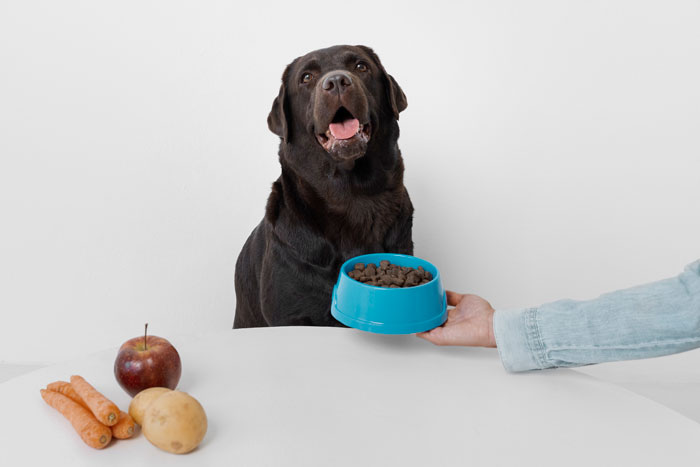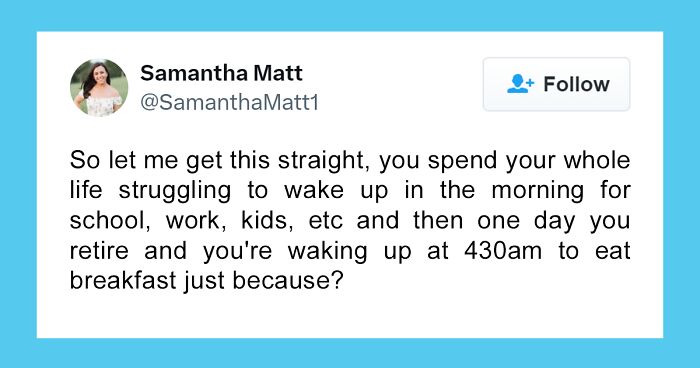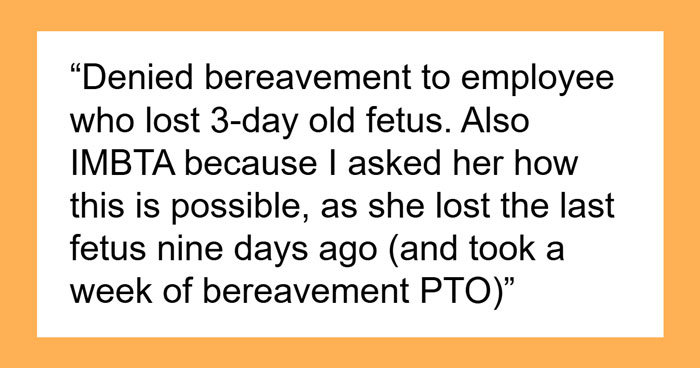Our furry friends age like fine wine, but their needs change with the years. Just like you wouldn’t expect a teenager to eat toddler food, senior dogs need special fuel to thrive! Senior food fuels their changing bodies, is packed with fewer calories, and key nutrients, and even helps manage health issues. But when’s the right time to switch to senior dog food?
- There's no single ideal age to switch dogs to senior food, but start considering it around 7-8 years.
- Senior dog foods help manage health issues like obesity, dental disease, and arthritis with specialized ingredients.
- Important factors when choosing senior dog food include nutritional balance, specific health concerns, and vet recommendations.
- Transition your dog to senior food over 7 days, gradually mixing it with their current food to avoid digestive issues.
Relax, there’s no single ideal age. Watch for signs like weight changes, slowing down, or joint stiffness, and discuss the switch with your vet around 7-8 years old for senior-specific support. Easy-to-digest ingredients, brain-boosting omega-3s, and joint-loving glucosamine are must-haves for senior dogs.
This guide helps you navigate the switch, from spotting the signs to understanding the benefits and choosing the perfect senior food for your beloved companion.
The information provided herein is for informational purposes only. Please refer to our disclaimer for more details..
Why Do Older Dogs Need Senior Dog Food?
Dietary needs change for animals over time because of age, activity, and health. Puppy requires a different diet than adult dog. Adult dogs require a different diet than senior dogs. For example, puppies need more nutrients for growth. Senior dogs may require fewer calories but more joint support. Let’s look at why senior dog food is important for them:
Lower Calorie Content
Older dogs don’t need as many calories. This is because they move less, and their bodies slow down. Senior dog foods have fewer calories to stop them from getting overweight. Weight gain can make problems like joint pain worse.
High-Quality Protein
It’s really important for older dogs to keep their muscles strong. Senior dog foods include good protein sources. These help keep muscles strong without causing extra work for the kidneys.
Managing Health Conditions
Older dogs can have health issues like problems with their teeth, getting too heavy, brain changes, and arthritis. The right food can help manage these problems. Senior dog foods often have special ingredients like glucosamine for healthy joints and the right amounts of phosphorus and sodium for good kidney and heart health.
Individual Health Assessments
Not every older dog needs the same food. What they need can be very different. A vet should check them to figure out the best food. This check-up looks at more than just their age.
When Does a Dog Need to Switch to Senior Dog Food?
Understanding when to switch a dog to senior dog food involves several key factors:
Age Considerations
It’s general knowledge that most dogs enter their “senior” years around age 7. But, it’s not the same for every dog.
Breed and size play a huge role. Big dogs often become seniors by age 6 because they usually don’t live as long. On the other hand, small breeds might not hit senior status until they’re about 12, thanks to their longer lifespans.
The American Veterinary Medical Association (AVMA) points out that dogs between 6 and 8 years old can be considered seniors. This varies, with larger breeds aging faster than their smaller counterparts.
Physical Changes
These dogs show signs of getting older in several ways:
- Their fur, especially around the muzzle, starts to gray.
- They move less because of conditions like arthritis.
- Their skin and coat might not look as healthy, due to not absorbing nutrients well.
- Some may not see or hear as well as they used to.
Health and Nutritional Needs
Caring for senior dogs means paying extra attention to their health and what they eat:
- They may need fewer calories, as they’re not as active.
- Getting enough protein is important to keep their muscles strong and healthy.
- Regular visits to the vet are crucial to check for and manage any health issues that come with age.
What Conditions Can Senior Dog Food Help Manage?
Senior dog food helps older dogs stay healthy. It’s made special for their needs. Let’s examine what health problems it can help with and why certain nutrients and supplements are important.
Health Issues Senior Dog Food Can Help Manage
Dental Disease: This kind of food has special kibble. The shape, size, and texture help keep teeth clean. For dogs with fewer teeth, softer food is easier to eat.
Obesity: These foods have fewer calories. That’s good for dogs who don’t move around much. It helps them not get too heavy and avoid health problems from being overweight.
Cognitive Dysfunction: It has fatty acids and some special oils. These can help older dogs think clearer and act more like their younger selves.
Arthritis: Ingredients like glucosamine, chondroitin sulfate, and omega-3 fatty acids are in there too. They help with joint health and make moving around less painful for dogs with arthritis.
Kidney Disease: Some foods have less protein but are good quality. This helps the kidneys not have to work so hard but still gives your dog what they need nutrition-wise.
Skin Diseases: Vitamin A and linoleic acid help keep your dog’s skin and fur healthy. This can be good for dogs that have skin problems as they get older.
The Role of Nutrients and Supplements
Senior dog foods pack in lots of good stuff for older dogs:
- High-Quality Protein: It keeps muscles strong so dogs can stay active and mobile.
- Omega-3 Fatty Acids: These come from fish oil and some plants. They’re great for joints, brains, and fur.
- Glucosamine and Chondroitin: These supplements help keep joints and cartilage in good shape, making it easier for dogs to move.
- Antioxidants: They help the immune system and fight off damage from aging.
- Fiber: The right amount helps with digestion and keeping a healthy weight.
But remember, every dog is different. Whether your dog needs this special food depends on their health and what they need. Talking to your vet is a good idea. They can help you pick the best food for your senior dog, making sure they get what they need to be happy and healthy in their later years.
When Should I Start Feeding My Dog a Senior Dog Food?
Deciding when to switch your dog to senior dog food takes more than just looking at their age. It’s about the last 25% of their life, which is different for each breed and size.
Big dogs often need senior food sooner than little ones because they don’t live as long. You should consider health, weight, and what you eat now to make the best choice.
Key Considerations
- Health Conditions: Senior dog food can help if your dog gets joint or kidney problems with age. This special pet food is made to help with these issues.
- Weight Management: Less active dogs might gain weight. Senior food with fewer calories can help keep their weight in check. But if your dog is too thin, they might need food with more calories.
- Current Diet Quality: If your dog’s food is already full of good stuff like glucosamine, you might not need to change to senior food. But think about other age-related changes that might need different nutrition.
- Talking to Your Vet is key. They can look at your dog’s health and needs. They’ll tell you if senior food or maybe a special diet is better. They’ll also help decide the best time for the change based on how your dog is doing and their way of life.
What Should I Look for in a Senior Dog Food?
Some of the things to be considered for choosing the best dog food for your senior include considering a number of factors, taking into account the type of health concern presented. Here is the ultimate guide on the things to consider for your older dog:
Factors to Consider
Quality and Nutritional Balance: This is a guarantee that a dog owner whose dog feeds on foods approved by the Association of American Feed Control Officials (AAFCO) will meet the required nutritional standards for senior dogs. Good quality protein, fortified with antioxidants, glucosamine, chondroitin, and omega-3 fatty acids, is important to help in maintaining overall health, proper joint care, and a healthy immune system.
Special Needs of Senior Dogs in Nutritional Terms
As a dog grows old, several changes within the immune system, gastrointestinal system, and, in some cases, the development of osteoarthritis may occur. There are various foods prepared to meet this need, and they include support for joint health, immune response, and digestive wellness.
Specific Health Conditions: It is imperative to consider any health condition in your dog. For instance, glucosamine and chondroitin are found in foods to help joint health in dogs with arthritis, while omega fatty acids provide both skin and coat benefits. L-carnitine is useful in both burning fat and supporting the health of the heart.
Vet Recommendation: Talk to your vet; it’s the best advice they can give you. They will be able to offer relevant advice, taking into account the health status of your dog, any existing susceptibility to disease, and its overall lifestyle. They’ll ensure that the senior diet is as supportive as possible.
Reading Labels and Comparing Nutritional Content
Choose the best quality of ingredients: select foods providing easily digestible, high-quality sources of protein that maintain muscle mass and a healthy metabolism.
Appropriate Caloric Balance: Senior dogs usually possess lower energy needs. A diet coming from fats and proteins must, therefore, have a balanced caloric content and be appropriate for low activity levels.
Joint Health and Mobility Support: To be noted are the essential benefits that include ingredients for joint health and mobility support like glucosamine and omega-3 fatty acids (EPA and DHA), which are particularly more vital in dogs that may be affected by arthritis or issues relating to mobility.
Mental Sharpness: Some use enhanced vegetable oils, and others include other nutrients known to promote alertness and mental sharpness in aging dogs.
Transitioning Your Dog to Senior Food
For transitioning your dog to senior food, follow a 7-day schedule:
- Days 1-2: Mix 75% of your dog’s current food with 25% of the new senior food.
- Days 3-4: Adjust the mix to 50% current food and 50% new senior food.
- Days 5-6: Change the mix to 25% current food and 75% new senior food.
- Day 7: Completely switch to the new senior dog food.
Consult your vet if your dog experiences digestive upset during this transition.
Conclusion
The right diet plays a crucial role in maintaining the health and well-being of senior dogs. It’s essential for pet owners to work closely with veterinarians when choosing and transitioning to a senior dog food, ensuring the dietary needs of their aging companions are met for a happier, healthier life in their golden years.
195views
Share on Facebook
 Dark Mode
Dark Mode 

 No fees, cancel anytime
No fees, cancel anytime 



 Image credits:
Image credits:  Image credits:
Image credits:  Image credits:
Image credits: 





















![“AITA For Losing [It] And Screaming At GF To Get Out Of My House After What Her Stepbrother Did?”](https://www.boredpanda.com/blog/wp-content/uploads/2025/01/man-screams-gf-over-creepy-stepbrother-fb18-png__700.jpg)
-5
0